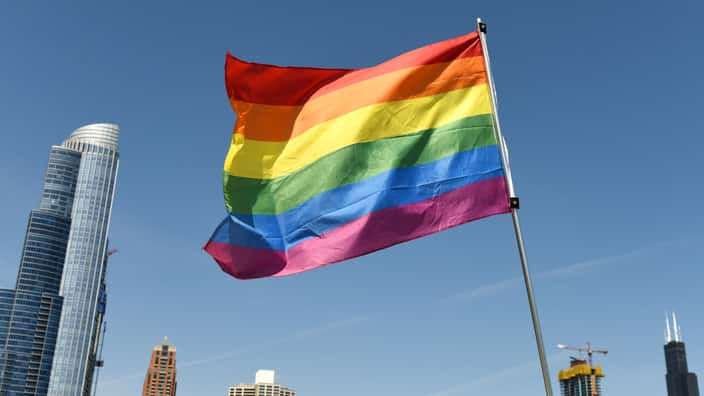
 Bumblee_Dee/iStock(WASHINGTON) — The Trump administration has proposed a rule that would allow federal contractors to factor in religion in hiring a person, a move advocates say would enable employers to apply a religious litmus test and condone discrimination against the LGBTQ community and other groups.
Bumblee_Dee/iStock(WASHINGTON) — The Trump administration has proposed a rule that would allow federal contractors to factor in religion in hiring a person, a move advocates say would enable employers to apply a religious litmus test and condone discrimination against the LGBTQ community and other groups.
The rule is the latest nod to the religious right and evangelical Christian leaders who say the U.S. workplace in recent decades has become too focused on protecting the rights of the LGBTQ community.
The Labor Department said that federal contractors would not be able to discriminate on the basis of race, sex, national origin, or other protected groups in accordance with the law. But under the rule, companies and groups that identify as religious “may make employment decisions consistent with their sincerely held religious tenets and beliefs without fear of sanction by the federal government,” according to a statement.
Advocacy groups argue the rule authorizes discrimination and allows religious employers to make adherence to religious tenants a condition of employment.
“The rule reflects part of a very dangerous tide if you care about equality and if you care about separation of church and state,” Louise Melling, deputy legal director with the ACLU, said on a call with reporters Wednesday.
A senior official from the Labor Department said the changes are meant to update the legal language to align it with recent Supreme Court cases and executive orders issued by President Donald Trump. The administration has proposed similar changes for health care offered by religious organizations.
“The department’s regulations for a long time have allowed religious organizations to take applicants and employees religion into account when making employment decisions, that’s not new, this proposal only seeks to clarify who qualifies as a religious organization and what religion means under the law. That’s it,” an official with the Labor Department told ABC News.
The rule “proposes to define Particular religion to clarify that the religious exemption allows religious contractors not only to prefer in employment individuals who share their religion, but also to condition employment on acceptance of or adherence to religious tenets as understood by the employing contractor,” according to the text of the proposed rule change.
The proposed rule uses a three part test to determine if an entity is religious, whether it was organized for a religious purpose, publicly presents itself as religious, or engages in the exercise of religion.
The rule is likely to face legal challenges from civil rights groups that say it legalizes discrimination based on a religious litmus test. The rule defines religion as “all aspects of religious observance or beliefs,” though the government does not define what kinds of religious practices would be considered.
“Not only does this have tremendous negative impact on the LGBTQ community but it completely revamps how religious exemptions have been applied previously, including that were put in place by the Bush administration, to allow for widespread discrimination against religious minorities, against women, against any individual who is not adhering to both what we would traditionally consider to be a religious organization holds out as it’s tenets, but then also applies those religious exemptions in a brand new way to for-profit companies,” said Sarah Warbelow, legal director for the Human Rights Campaign.
Advocates said they don’t know of any specific federal contractor who has been pushing for the change, but the proposed rule mentions entities that have said they haven’t applied for government contracts because of a lack of clarity around religious exemptions. The proposal doesn’t give an estimate of how many potential contractors could claim a religious exemption.
The Alliance Defending Freedom, an organization that advocates for religious protections, said the rule will make more religious organizations available to provide services like foster care, shelters and job training without being marginalized for religious views.
“All Americans have the freedom to operate according to their religious beliefs, and those freedoms don’t disappear when a university, charity, or international nongovernmental organization enters into a contract with the federal government,” the group’s senior counsel Gregory S. Baylor said in a statement.
A senior Labor Department official said they expect more religious organizations, such as universities, to compete for federal contracts because the rule ensures greater respect for their faith-bases missions.
The rule will be open for 30 days of public comment and is expected to face legal challenges.
Copyright © 2019, ABC Radio. All rights reserved.
